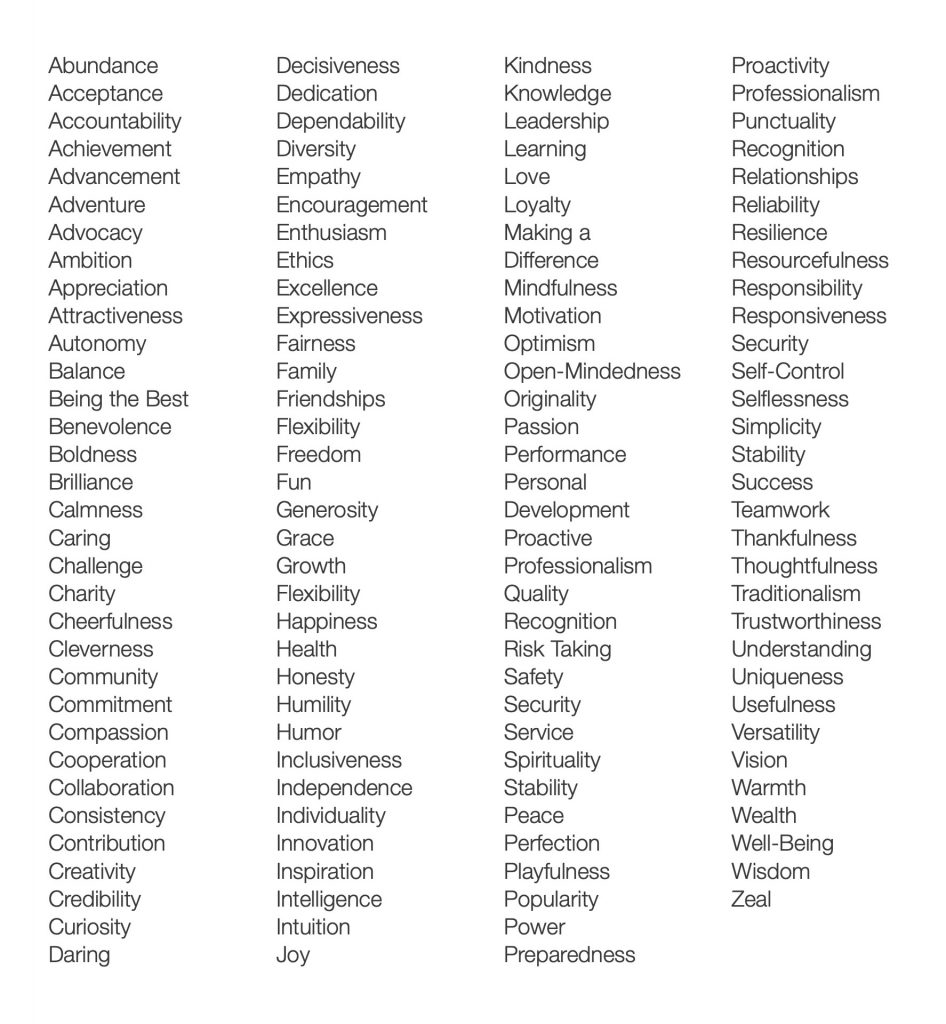
This post is the second in a series on Christian Values. You can read the first post HERE.
Experiencing cognitive dissonance after reading articles such as those cited in my earlier post, my first inclination was to provide proper definition of Christian Values and relieve my, and your dissonance. Fortunately, it occurred to me, those authors were doing the same in their respective articles.
What makes me think I have better understanding of Christian Values than people obviously more qualified than me?
In all likelihood, I, like them, am certain my understanding is correct and therefore have an implicit responsibility to defend those (my) values and challenge any deviation. Ergo, our divisive culture.
Feeling foolish, I have abandoned the idea of defining Christian Values, at least for now.
Instead, I want to probe some thoughts and ideas about values to stimulate our thinking and hopefully move toward greater clarity about Christian Values.
Your values are the things that you believe are important in the way you live and work. They (should) determine your priorities, and, deep down, they’re probably the measures you use to tell if your life is turning out the way you want it to. When the things that you do and the way you behave match your values, life is usually good – you’re satisfied and content. But when these don’t align with your personal values, that’s when things feel… wrong. This can be a real source of unhappiness.
https://www.mindtools.com/pages/article/newTED_85.htm
I propose the first step (of course there is a plan) in moving toward greater clarity comes at a personal level. Step (1) Conduct a complete and thorough self-examination to determine my real values . Since all of us are irrationally wedded to our beliefs and derived values, any reasoned attempts to come to a truthful understanding of our values will be futile; unless there is some transcendent existential intervention. i.e. Moses and the burning bush…David and Nathan…Isaiah in the temple…Saul on the Road to Damascus… Peter again and again. et al.
Some think the Coronavirus pandemic is divine existential intervention, regardless, it is a significant transcendent existential experience which provides an opportunity for an examination of our values.
Admittedly, the depth and breath of the pandemic varies widely. But, even for those of us in our privileged confines are being forced to think about what we value.
This pandemic may not be a Damascus road, but we shouldn’t let a crisis go waste.
To that end, I am making an intentional effort to gain better clarity about what my true values are.
That is a daunting task but it pales with the thought that I might discover my values are misplaced and need to be changed. Sorry, that’s premature, one step at a time .
In case you’re having trouble getting started, here is a thought starter:
Did you rush out to buy toilet paper, a lot of toilet paper??
In the next post we’ll look at Step (2). How do my values align with “Christian Values”?
